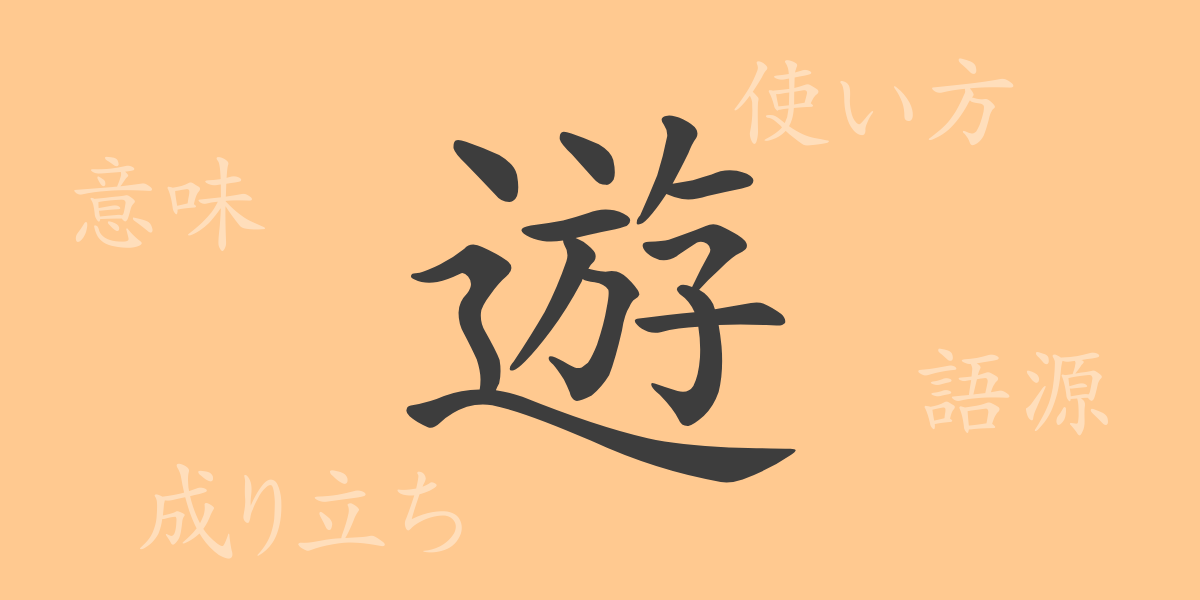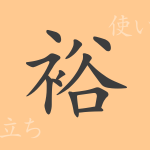In the Japanese language, there are numerous kanji characters with rich expressive power. Among them, the character “遊” (yū) embodies a concept deeply rooted in our daily lives. In this article, we delve into the charm of the commonly used kanji “遊” (yū), exploring its etymology and modern usage. By embracing the playful spirit of “遊” (yū), you can deepen your understanding of the Japanese language.
The Origin (Etymology) of 遊 (yū)
The origin of the kanji “遊” (yū) dates back to ancient China. The original character is a combination of “辵” (movement) and “右” (right hand), symbolizing the act of moving one’s hand, particularly moving around freely. From this, the meaning of “to play” was derived. Over time, this kanji came to refer to leisure and recreational activities, and today it is used in various contexts.
The Meaning and Usage of 遊 (yū)
The basic meaning of “遊” (yū) is “to play,” referring to the act of enjoying something. However, it is used in a wide range of nuances. For instance, “遊学” (yūgaku) means traveling to a foreign country to study, “遊牧” (yūboku) refers to a nomadic lifestyle, and “遊び” (asobi) can also imply leisure or a sense of relaxation. In machinery, a small gap between parts is referred to as “遊びがある” (asobi ga aru), indicating a margin or play.
Reading, Stroke Count, and Radical of 遊 (yū)
The kanji “遊” (yū) has various readings in Japanese, each carrying different nuances depending on the context.
- Readings: On’yomi (音読み) as “ユウ” (yū), Kun’yomi (訓読み) as “あそ.ぶ” (aso.bu), “あそ.び” (aso.bi)
- Stroke count: 12 strokes in total
- Radical: 辵 (shinnyō)
Idioms, Proverbs, and Phrases Using 遊 (yū)
There are many idioms, proverbs, and phrases in Japanese that include the character “遊” (yū). For example, “遊び人” (asobinin) refers to a person who makes a living by playing, “手を遊ばす” (te wo asobasu) means to be idle or doing nothing, “遊山” (yūzan) originally meant going to the mountains for fun, now it refers to going out for a change of scenery, and “遊学” (yūgaku) means traveling to study.
Summary of 遊 (yū)
The kanji “遊” (yū) symbolizes not only the act of playing but also freedom, leisure, and mental relaxation. The diverse expressions using “遊” (yū) in the Japanese language reflect the culture and history behind the words. By being mindful of “遊” (yū) in daily life, you can rediscover the richness of the Japanese language.

























